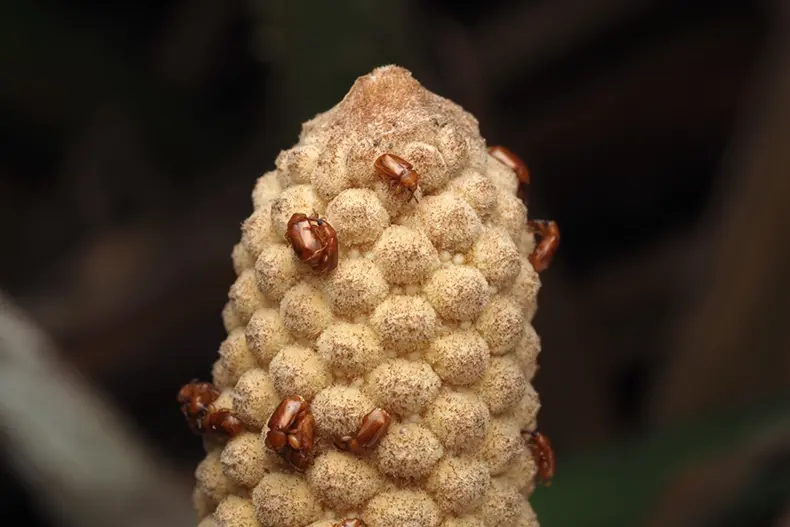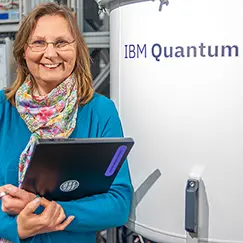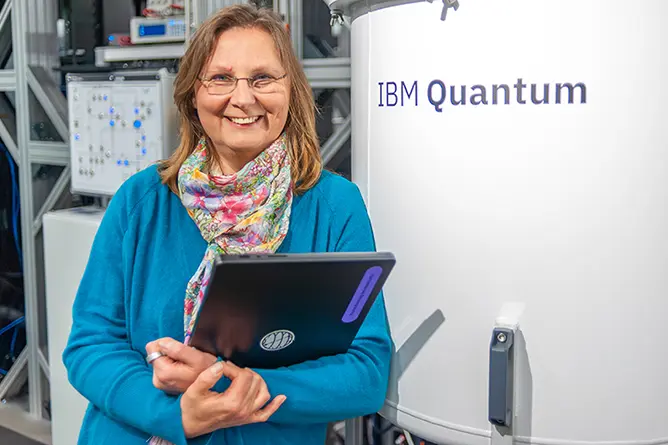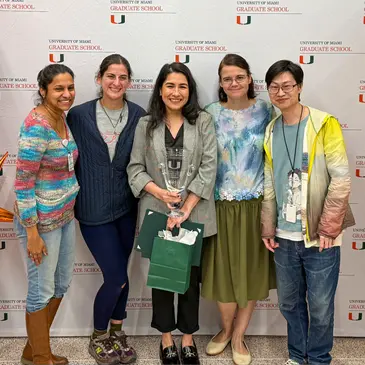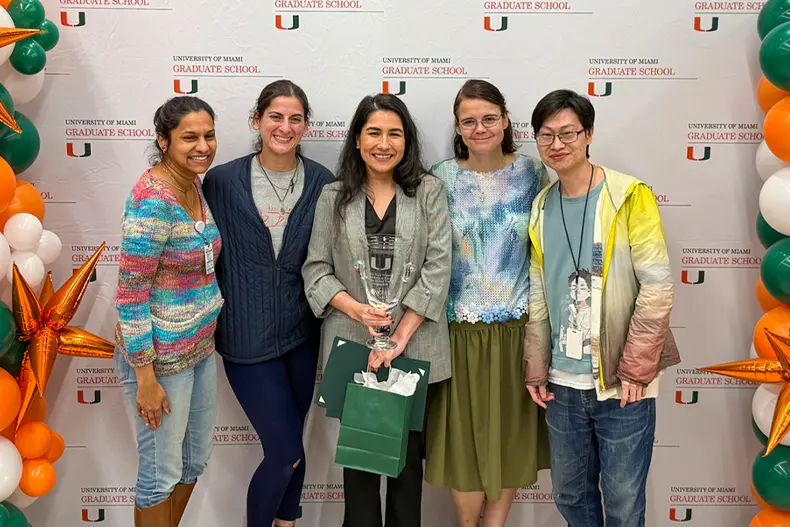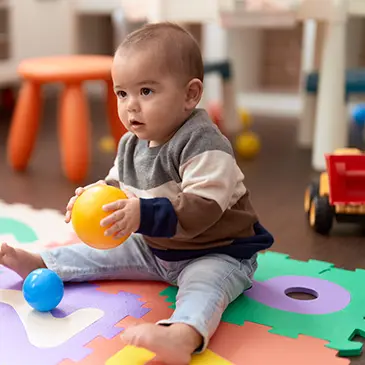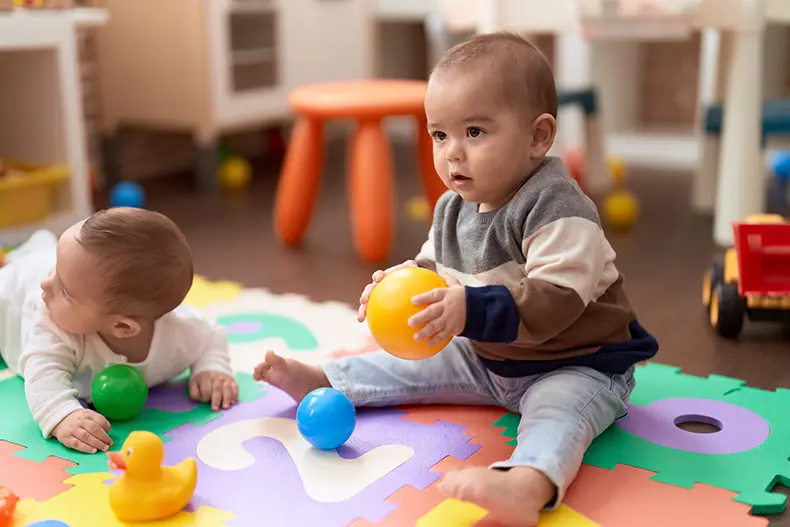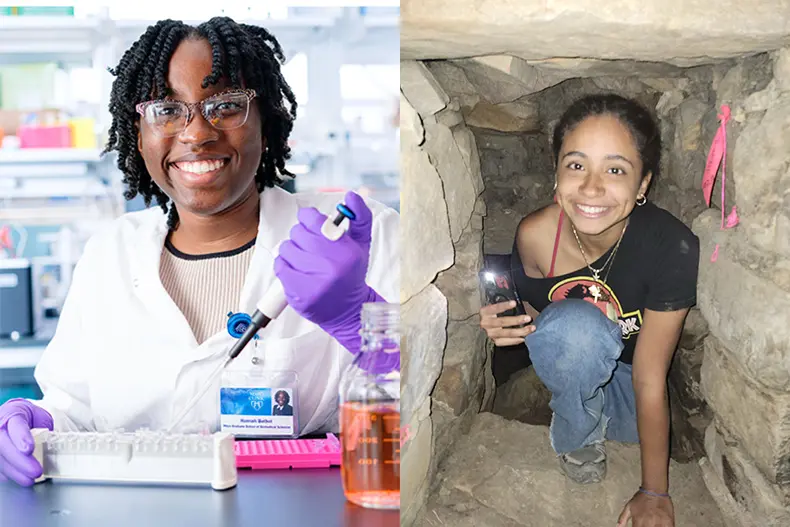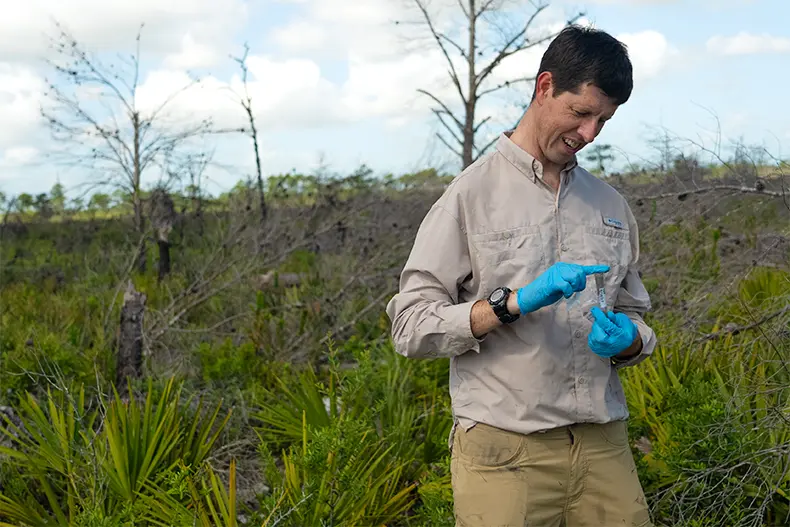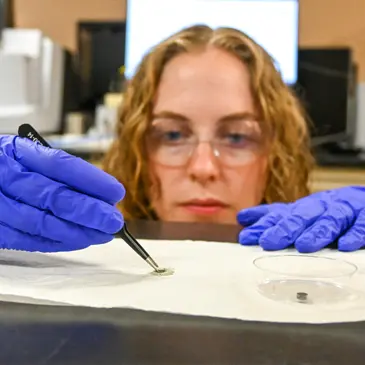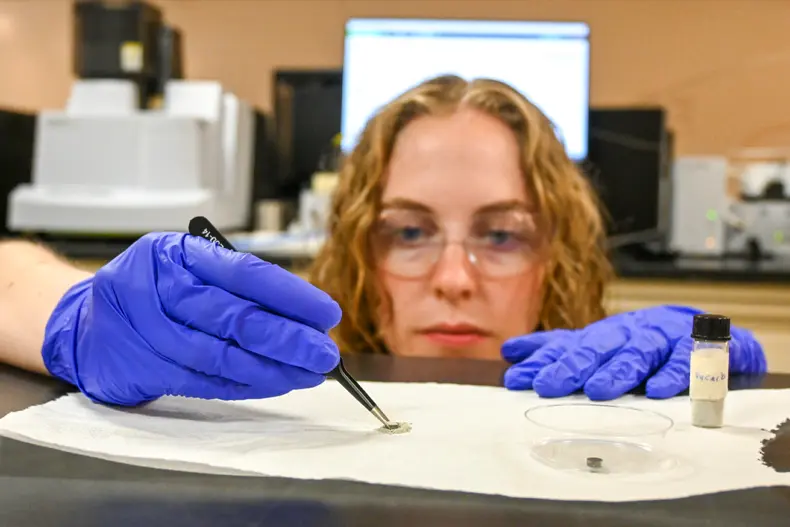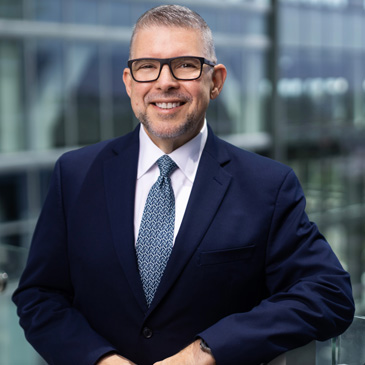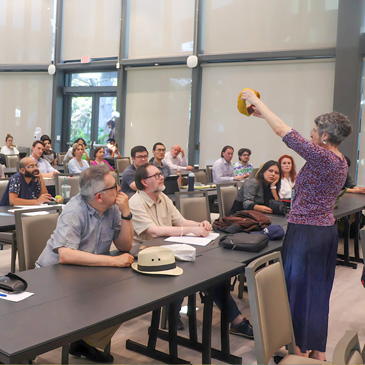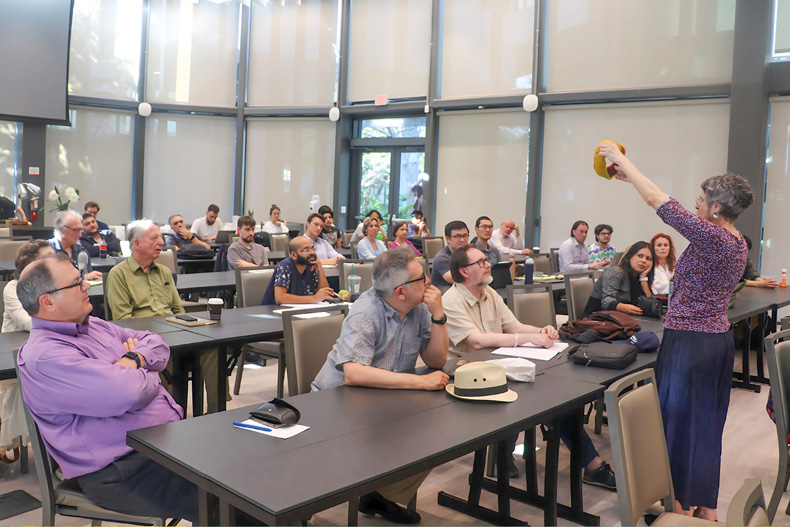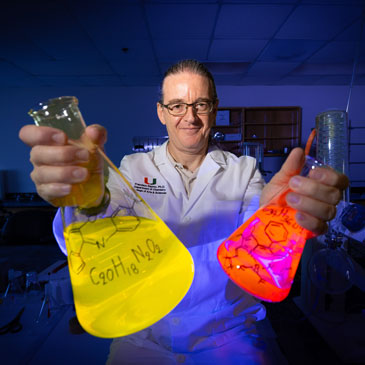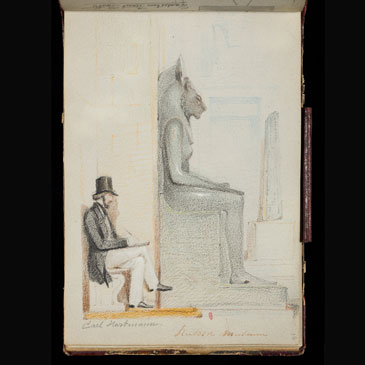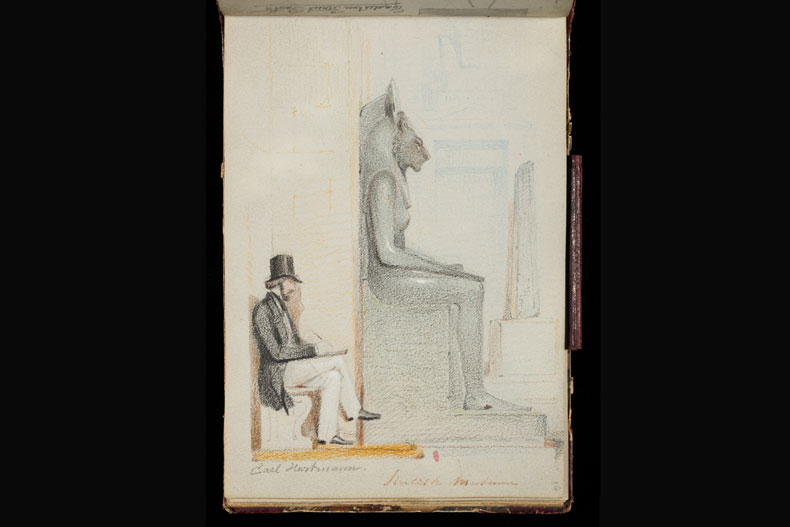Research
Before flowers, ancient plants used heat to attract pollinators
A team of researchers has made new discoveries about the origins of pollination and plant-animal communication.
From freezing University of Miami labs to IBM’s quantum frontier
Physics alumna Daniela Bogorin brought her expertise to IBM, where she tests next-generation quantum computers.
Big ideas in 180 seconds
The 10th Annual Three Minute Thesis Competition showcased graduate students across the University of Miami presenting research in fields ranging from medicine and computer engineering to literature and marketing.
University of Miami joins international study on autism risk in young children
Psychologists in the College of Arts and Sciences are monitoring the development of infants and toddlers whose parents have a sibling with autism.
University of Miami joins statewide quantum technologies alliance
The College of Arts and Sciences is leading the University’s participation in an initiative to make Florida a leader in the second quantum revolution.
Shedding light on hidden underground networks that nourish plants
Graduate student Anne Katula spends her days investigating the invisible partnerships in soil.
A multi-disciplinary approach to studying the legacies of slavery
A University of Miami anthropologist was awarded a visiting professorship based at the University of Cambridge to build a research program on the modern impacts of slavery.
Can adults be trained to better recognize and avoid sick faces?
New research from the Department of Psychology at the University of Miami looks at the efficacy of training adults to recognize sick faces.
From cancer risk to ancient tombs: Students explore diverse projects with research scholarships
Students who conducted research at the Mayo Clinic and participated in a bioarchaeology field school are among this year’s Beyond the Book scholarship recipients.
Unearthing Florida’s hidden soil secrets
At the Archbold Biological Station in Central Florida, University of Miami researchers are exploring the hidden world of the Florida scrub's unique ecosystem—its soil microbiome. Their work focuses on understanding how intense storms impact vital organisms such as bacteria and fungi, which are critical for nutrient cycling and the ecosystem’s overall health.
Undergraduate students get direct research experience at the U
Seventeen students from colleges across the country visited the University of Miami and worked in physics and engineering labs across campus as part of the National Science Foundation’s research experiences for undergraduates this summer.
Psychologist leads longitudinal studies to improve health outcomes
University of Miami psychologist Frank Penedo is leading two longitudinal studies on factors that impact health outcomes and disease risk in Hispanic communities.
Gift elevates math institute’s global vision
An additional $3 million grant from the Simons Foundation further establishes the Institute of the Mathematical Sciences of the Americas as an international nexus where ideas cross borders and knowledge unites nations.
Shining a light on the inner workings of cells
Chemist Françisco Raymo has designed tiny molecules that can be used to take highly detailed images of diseased cells.
Summer arts and humanities research fuels creative discovery
A University of Miami art historian and a creative writing graduate student both traveled abroad this summer to conduct research.

